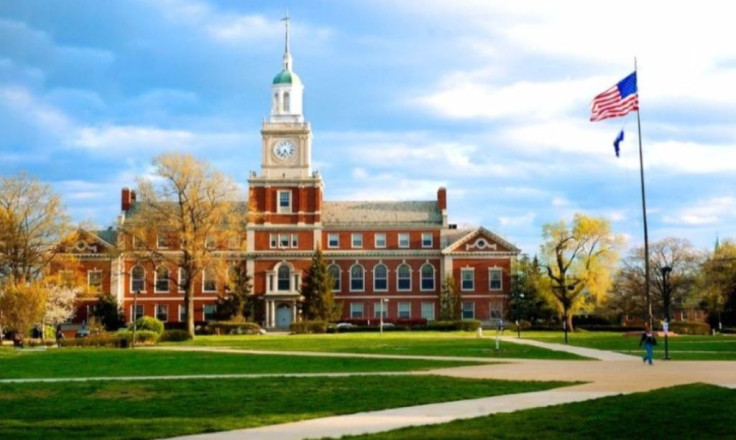
Howard University's law school is being sued for racial discrimination by a white student who claims the institution created a "hostile education environment."
The plaintiff, Michael Newman, began attending Howard University School of Law in the fall semester of 2020 and left after just two years, in September 2022, after being dismissed.
He is seeking $2 million in monetary damages for his "pain, suffering, mental distress, and reputational harm."
Howard University's vice president and chief communications officer, Frank Tramble, stated that although he was unable to comment "substantively" due to pending litigation, the school "is prepared to vigorously defend itself in this lawsuit as the claims provide a one-sided and self-serving narrative of the events leading to the end of the student's enrollment at the University."
According to the complaint, Newman experienced "public ostracism, vilification, and humiliation," which led to "depression, anxiety, and suicidal thoughts."
Global Head of Diversity Recruiting Reggie McGahee allegedly told Newman he had become the most hated student McGahee had seen during his tenure at the university, according to the lawsuit.
The law school's dean reportedly denied that Caucasian students at Howard Law, and Newman in particular, experienced any form of racial discrimination when Newman voiced his concerns about how he was treated by school officials, reports New York Post.
Students heard about a tweet from Newman's private Twitter account after discussions of his alleged racial insensitivity, the lawsuit claims. The tweet included a picture of a slave baring his severely scarred back with the caption, "But we don't know what he did before the picture was taken."
Newman claimed the tweet was mocking commentators who "attempt to explain away videos of police brutality by claiming the victim must have committed wrongdoing before the video started."
Students, according to him, reacted by making comments about his race, gender, sexual orientation, age, and outward appearance.
According to Newman in court documents, problems arose when the university switched to remote learning at the start of the pandemic, which required students to interact exclusively through online forums and GroupMe chats.
In the run-up to the 2020 election, Newman claims that following a symposium with an African-American speaker, he posted on a professor's forum page asking for more discussion on "whether: (1) black voters didn't question turning to government for solutions, and (2) reliably voting for the same party every election disincentivized both parties from responding to the needs of the black communities."
The claims state that after some pupils voiced their disapproval of Newman's post and got in touch with school officials, Newman was kicked out of one of his class-related group chats.
In addition, Newman talked about how he felt "utterly disenfranchised" at the institution and compared himself to a black student there. The student response was again largely negative, with some calling his comment "offensive," he claimed.
Newman repeatedly apologized for offending anyone, stressing he was seeking to "learn, not just law, but to learn the thoughts and experiences of people of color," the lawsuit stated.
Students claimed that "controversies" that they blamed on Newman had caused "severe stress" and "distracted" them from their studies.
However, Newman allegedly faced more overt hostility. Many students allegedly began to refer to him as "mayo king" (a perceived reference to his race) and "white panther."
The lawsuit claimed that Newman attempted to correct the situation by distributing a four-part letter outlining his viewpoints, but the effort was derided as a "manifesto" and that one student accused him of "manipulating [classmates'] feelings... as a social experiment." According to the letters, Newman was expelled from a group chat for the entire second semester.
According to the allegations, School of Law Dean Danielle Holley later secretly recorded a Zoom conference she held with Newman and McGahee, during which she allegedly recommended that Newman transfer to another university while accusing him of racial harassment of classmates.
According to the lawsuit, Holley allegedly called Newman's letters "disturbing in every sense of the term" at a 300-participant digital town hall to discuss the issues surrounding Newman.
She reportedly turned off his camera and disabled the chat feature to prevent him from trying to use several features to try and speak up in his defense.
Holley and Newman wound up filing simultaneous complaints, with Holley accusing Newman of "continual harassment of member [sic] of the Howard Law community, and disturbance of the learning environment at the School of Law."
At the same time, Newman claimed Holley had perpetuated "threats," "discrimination" and a "hostile academic environment."
The school decided that Newman was "responsible" and that he should be expelled after a panel looked into Holley's allegation. The lawsuit stated that, to his understanding, Newman's complaint was never resolved.
When Holley provided the first panel with evidence that Newman never saw, which he claimed amounted to "secret evidence," Newman appealed the decision. However, a second review panel reportedly came to the same conclusion.
Newman's attorneys brought the lawsuit in federal court.
Following a series of incidents and accusations that resulted in multiple review panels and hearings that led to Newman's expulsion, the school allegedly breached its contract with the scholarship student. According to Newman's attorneys, they will attempt to show that the school was at fault.
© 2025 Latin Times. All rights reserved. Do not reproduce without permission.



